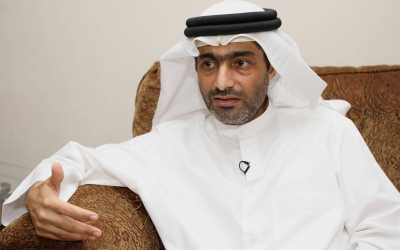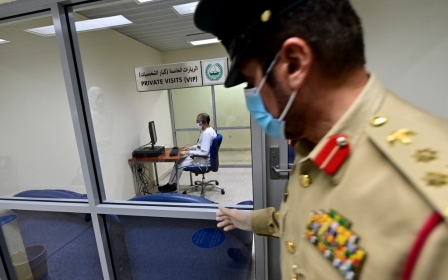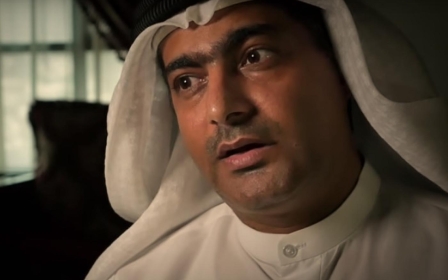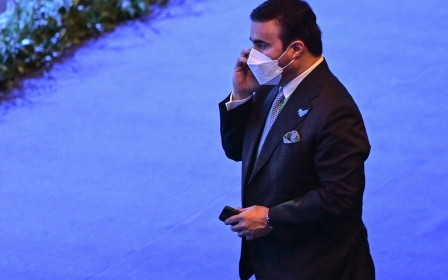Activists mock UAE minister's call to outlaw cyber-murders 'while real people suffer'
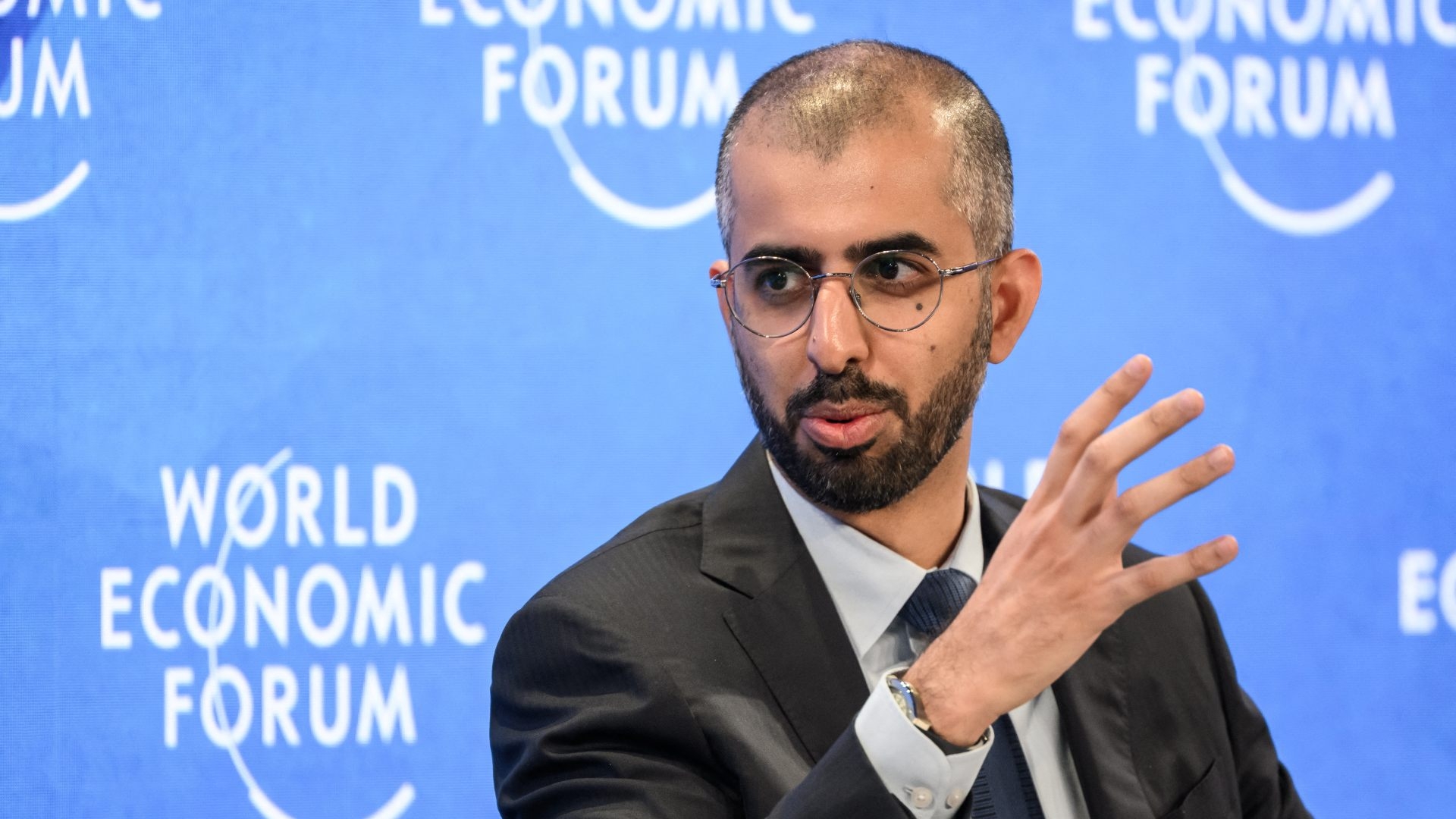
Human rights activists have condemned calls by the United Arab Emirates regarding the policing of crimes in the Metaverse, and claimed the oil-rich nation's true goal is to push legislation that will curb dissent in the newly emerging virtual realm.
Last week, the UAE minister for artificial intelligence, Omar Sultan al-Olama, took the podium at the World Economic Forum in Davos, Switzerland, to warn against "cyber-murders".
"If I send you a text on WhatsApp, it's text, right?" Olama said. "It might terrorise you - but to a certain degree it will not create the memories that you will have PTSD [post-traumatic stress disorder] from it.
'They are obsessed with controlling and watching everything'
- Hamad Alshamsi, the Emirates Detainees Advocacy Center
"But if I come into the Metaverse and it's a realistic world that we're talking about in the future, and I actually murder you, and you see it... it actually takes you to a certain extreme where you need to enforce aggressively across the world because everyone agrees that certain things are unacceptable," he added.
The Metaverse is a broad term that largely refers to virtual worlds that continue to exist beyond the time a user spends logged into it, and can be used to refer to video games as well as augmented reality that combine aspects of both the physical and digital worlds.
While the remarks were not widely reported, they raised alarm bells among activists who said while the UAE was trying to ban virtual harm it continued to physically harm activists and dissidents in the real world.
"The irony in that is that they [the UAE] use vague cyber-crime laws to sanction human rights defenders, and they want to use real laws to sanction Metaverse crimes," said Lina al-Hathloul, the communications head of the Saudi human rights group ALQST, adding that Olama's remarks exposed UAE duplicity:
"They should first think about how they treat people in the real world and make sure that the cyber-crime laws are not used to prosecute human rights defenders. Human rights should be first applied in the real world."
UAE's cyber-crime laws
Khalid Ibrahim, co-founder and executive director of the Gulf Centre for Human Rights, said the comments were hypocritical, as the UAE was calling for legislation against murder in the Metaverse, while jailing activists and placing them in harsh prison conditions.
"Legislations, such as the cyber-crime law, and other laws, are used to imprison activists," he told MEE.
"In prison, they're really treated so badly, just because they called for a bit of respect, as well as civic and human rights of citizens," he added.
Activists also shared concerns that the call to ban certain conduct in virtual worlds could be a front for increasing the UAE's efforts to curb dissent in cyber-space in general.
Since the 2011 Arab Spring uprisings, the UAE has utilised an array of cyber-security tools to target political and rights activists.
Abu Dhabi enacted cyber-crime laws in 2012, which Human Rights Watch (HRW) said had closed down the last remaining realm of freedom of expression in the country.
HRW said the law contained vague language that provided a legal basis to imprison people who "criticise senior officials, argue for political reform, or organise unlicensed demonstrations".
Hamad Alshamsi, executive director of the Emirates Detainees Advocacy Center, said the comments made about policing the Metaverse appeared to be an extension of these laws, and an attempt to establish its own security foothold in the newly emerging virtual reality space.
"The outlawing of the 'virtual murder' in the Metaverse will give the UAE the right to monitor the Metaverse world," Alshamsi told Middle East Eye.
"The purpose of this statement is not to combat crime, but [is] an introduction to the censorship of Metaverses. They use spyware under the pretext of combating terrorism.
"They are obsessed with controlling and watching everything."
Another PR campaign?
Alshamsi said that, rather than worrying about what happens in virtual reality, he "wished that the minister cared" about the treatment of detainees such as Ahmed Mansoor, denied medical care and transferred to a smaller cell in retaliation for speaking out against his prison conditions.
Mansoor, a prominent Emirati activist who protested against internet censorship, surveillance and oppression, was arrested in 2017 for violating the UAE's cyber-crime law, and is serving a ten-year prison sentence.
In recent years, the UAE has also reportedly used spyware to target the wife of murdered MEE columnist Jamal Khashoggi, as well as Loujain al-Hathloul, and even a princess who attempted to flee the country.
The UAE denies that it has used spyware in these cases.
Hathloul said Olama's comments were tied to the UAE's public relations campaign, and were an attempt to project the country as being tolerant and concerned with human rights.
"It's just a way of trying to seem like they're progressive and that they're thinking ahead of everyone. But at the end of the day, in the real world, the real people in the UAE are suffering because of laws that prosecute people," she said.
According to a 2021 HRW report, the UAE has spent billions of dollars on "PR firms, celebrities, artists, and sports figures to whitewash their terrible human rights record".
Abu Dhabi has also been able to maintain a positive image within international institutions, such as the International Criminal Police Organisation (Interpol), which appointed as its president Ahmed Naser al-Raisi, the UAE's inspector-general of the interior ministry.
Raisi has been accused of torturing detainees in the Emirates and is currently facing a lawsuit over allegations of torture and the arbitrary detention of two British nationals.
"These kinds of conversations or these kind of initiatives that they have, such as having laws for the Metaverse etcetera, is really to draw attention away from the real problems and the real accusations the international community and civil society has been complaining about," said Hathloul.
Middle East Eye propose une couverture et une analyse indépendantes et incomparables du Moyen-Orient, de l’Afrique du Nord et d’autres régions du monde. Pour en savoir plus sur la reprise de ce contenu et les frais qui s’appliquent, veuillez remplir ce formulaire [en anglais]. Pour en savoir plus sur MEE, cliquez ici [en anglais].



